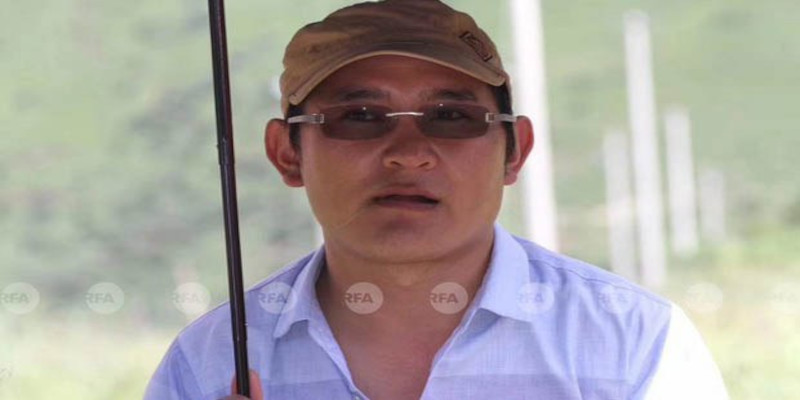Dharamshala, 22nd June: Tibetan writer who was arrested on unclear allegations two years ago has still not been brought to trial, and his family has been kept in the dark about his status. According to RFA, Lobsang Lhundup, also known as Dhi Lhaden, was detained in June 2019 while working at a private cultural education center in Chengdu, the capital of western China’s Sichuan province.
“It appears that someone informed the owner of the cultural center about the teaching materials he was using, and as a result, he was arrested, Lhundup is a friendly person who is well-known, and his friends have kept quiet about him until now in the hopes that he will be released, however, his case is still pending. No more information has been published about him, and no one has been allowed to meet with him.” according to RFA’s source, speaking on condition of anonymity for reasons of personal safety.
Lhundup was born in the Pema region of Sichuan’s Golog (Guoluo) Tibetan Autonomous Prefecture in 1980, according to reports. He became a monk at the age of 11 and studied at Sichuan’s Larung Gar Tibetan Buddhist Academy, which was later evicted by Chinese authorities, along with thousands of other monks and nuns. Lhundup traveled widely across Tibet in his late 20s after teaching Buddhism at Drepung and Sera monasteries in Tibet’s regional capital Lhasa. He then wrote and published books about region-wide protests in 2008 against Beijing’s policies and governance in Tibetan areas. Lhundup’s family(Lhundup has a wife and child) was summoned by Chinese authorities on December 4, 2020, to discuss his situation, but they only discovered that his trial was still pending and that they were not permitted to meet with him.
Following the demonstrations that swept Tibet and Tibetan parts of China in 2008, Chinese authorities routinely jailed writers, musicians, and artists promoting Tibetan national identity and culture, with many receiving lengthy prison sentences. According to sources, in recent years, Tibetan efforts to assert national identity have focused on language rights, with informally formed language schools being designated “illegal associations” and professors susceptible to detention and prosecution.
Image Courtesy: RFA







Leave a Reply